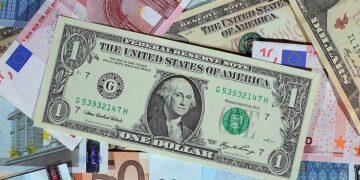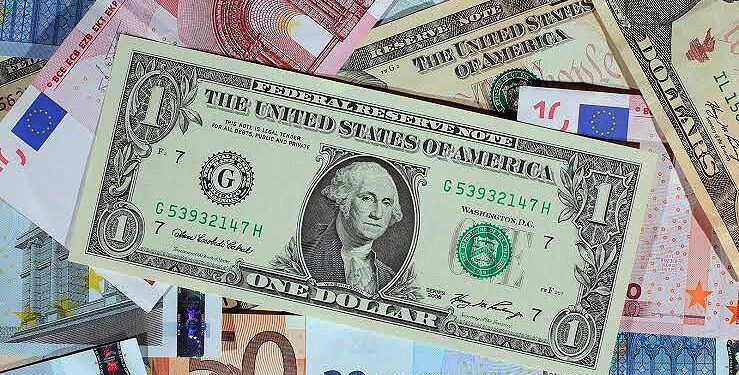By John Ikani
The exchange rate between the Euro, the official currency of 19 European Union member countries, and the US dollar became equal on Tuesday for the first time in 20 years.
The dip which is the lowest level since December 2002, signals assumption that the European economy is heading for a deep recession as a result of Russia’s invasion of Ukraine.
Since early February, when it was worth over $1.13, the value of the euro has fallen dramatically. Fear that Russia, the primary energy supplier for the EU, will entirely cut off gas deliveries in response to Western sanctions has caused the slump to pick up speed in recent weeks.
While the news is positive for Americans conducting business and traveling in Europe, it is a worrying sign for the health of the global economy.
Like the EU, many countries face several economic headwinds, including fears of a recession, high inflation and uncertainty over energy supply due to the Russia-Ukraine war.
The United States faces many of the same problems. The reason the dollar has strengthened is because the Federal Reserve has moved aggressively to hike interest rates and tighten monetary policy as a way of battling inflation. Those moves have made the greenback a safe haven for many investors, analysts say.
The European Central Bank has similar plans to raise interest rates to ease eurozone inflation that is running at 8.6%, but it has waited much longer to make a move.
The ECB announced that it will hike interest rates this month for the first time since 2011. But some economists fear the ECB acted too late to avert a sharp economic downturn, and that the euro will keep slipping in value.
Deutsche Bank analyst George Saravelos noted in a report last week that the euro could sink as low as $0.95 to $0.97 “if both Europe and the U.S. find themselves slip-sliding into a recession in Q3 while the Fed is still hiking rates.”
Meanwhile, the pound weakened against the dollar to $1.185 Tuesday morning, the Guardian reported — its lowest point since March 2020. The pound has been weighed down by political uncertainty tied to the recent resignation of former Prime Minister Boris Johnson as well as a darkening economic picture.
“The pressure on the euro and sterling reflects grave concern about the economic outlook.” Neil Wilson, chief market analyst at Markets.com, told the Guardian. “With inflation soaring and no plan to get it under control, the currencies are sitting ducks.”




































